第40章
It will be said, perhaps, that many discoveries have already taken place in the world that were totally unforeseen and unexpected. This I grant to be true; but if a person had predicted these discoveries without being guided by any analogies or indications from past facts, he would deserve the name of seer or prophet, but not of philosopher. The wonder that some of our modern discoveries would excite in the savage inhabitants of Europe in the times of Theseus and Achilles, proves but little.
Persons almost entirely unacquainted with the powers of a machine cannot be expected to guess at its effects. I am far from saying, that we are at present by any means fully acquainted with the powers of the human mind; but we certainly know more of this instrument than was known four thousand years ago; and therefore, though not to be called competent judges, we are certainly much better able than savages to say what is, or is not, within its grasp. A watch would strike a savage with as much surprise as a perpetual motion; yet one is to us a most familiar piece of mechanism, and the other has constantly eluded the efforts of the most acute intellects. In many instances we are now able to perceive the causes, which prevent an unlimited improvement in those inventions, which seemed to promise fairly for it at first.
The original improvers of telescopes would probably think, that as long as the size of the specula and the length of the tubes could be increased, the powers and advantages of the instrument would increase; but experience has since taught us, that the smallness of the field, the deficiency of light, and the circumstance of the atmosphere being magnified, prevent the beneficial results that were to be expected from telescopes of extraordinary size and power. In many parts of knowledge, man has been almost constantly making some progress; in other parts, his efforts have been invariably baffled. The savage would not probably be able to guess at the causes of this mighty difference. Our further experience has given us some little insight into these causes, and has therefore enabled us better to judge, if not of what we are to expect in future, at least of what we are not to expect, which, though negative, is a very useful piece of information.
As the necessity of sleep seems rather to depend upon the body than the mind, it does not appear how the improvement of the mind can tend very greatly to supersede this 'conspicuous infirmity'.30 A man who by great excitements on his mind is able to pass two or three nights without sleep, proportionably exhausts the vigour of his body, and this diminution of health and strength will soon disturb the operations of his understanding, so that by these great efforts he appears to have made no real progress whatever in superseding the necessity of this species of rest.
There is certainly a sufficiently marked difference in the various characters of which we have some knowledge, relative to the energies of their minds, their benevolent pursuits, etc., to enable us to judge whether the operations of intellect have any decided effect in prolonging the duration of human life. It is certain that no decided effect of this kind has yet been observed. Though no attention of any kind has ever produced such an effect as could be construed into the smallest semblance of an approach towards immortality, yet of the two, a certain attention to the body seems to have more effect in this respect than an attention to the mind. The man who takes his temperate meals and his bodily exercise, with scrupulous regularity, will generally be found more healthy than the man who, very deeply engaged in intellectual pursuits, often forgets for a time these bodily cravings. The citizen who has retired, and whose ideas, perhaps, scarcely soar above or extend beyond his little garden, puddling all the morning about his borders of box, will, perhaps, live as long as the philosopher whose range of intellect is the most extensive, and whose views are the clearest of any of his contemporaries. It has been positively observed by those who have attended to the bills of mortality that women live longer upon an average than men, and, though I would not by any means say that their intellectual faculties are inferior, yet, I think, it must be allowed that, from their different education, there are not so many women as men, who are excited to vigorous mental exertion.
As in these and similar instances, or to take a larger range, as in the great diversity of characters that have existed during some thousand years, no decided difference has been observed in the duration of human life from the operation of intellect, the mortality of man on earth seems to be as completely established, and exactly upon the same grounds, as any one, the most constant, of the laws of nature. An immediate act of power in the Creator of the Universe might, indeed, change one or all of these laws, either suddenly or gradually, but without some indications of such a change, and such indications do not exist, it. Is just as unphilosophical to suppose that the life of man may be prolonged beyond any assignable limits, as to suppose that the attraction of the earth will gradually be changed into repulsion and that stones will ultimately rise instead of fall or that the earth will fly off at a certain period to some more genial and warmer sun.
The conclusion of this chapter presents us, undoubtedly, with a very beautiful and desirable picture, but like some of the landscapes drawn from fancy and not imagined with truth, it fails of that interest in the heart which nature and probability can alone give.